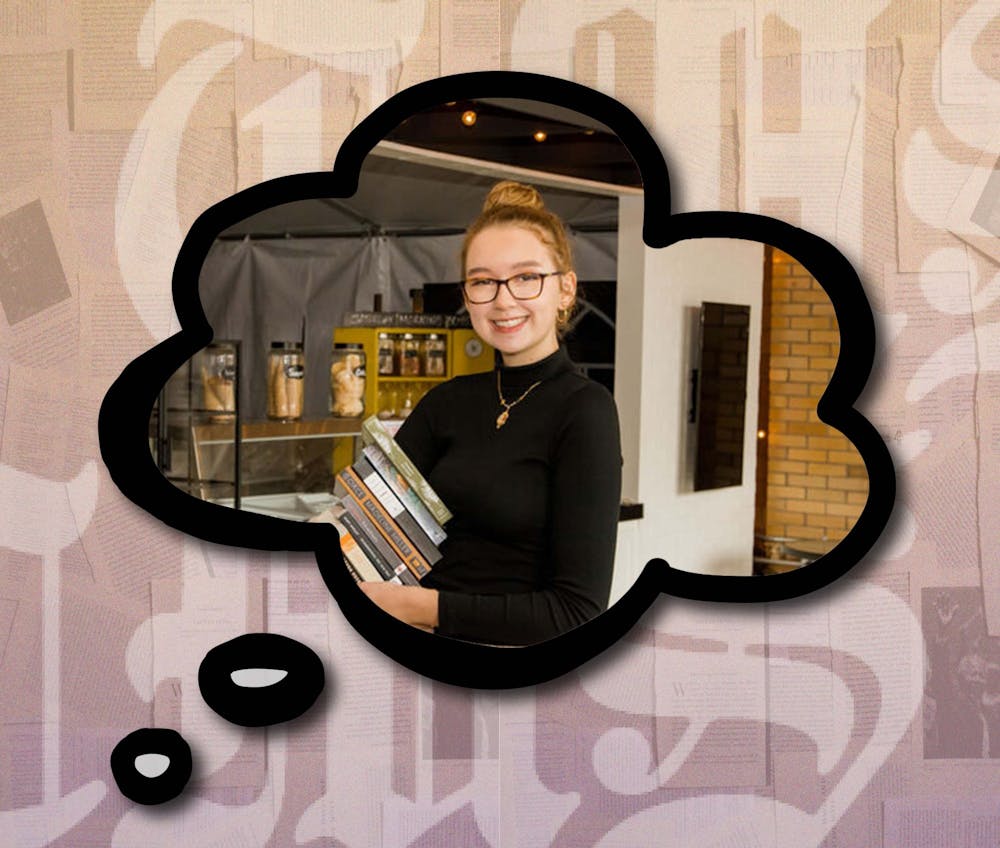Every time someone finds out that I am not yet a legal adult, the conversation goes the exact same way.
The first stage is denial; “Really?” they ask, as if I would decide to fabricate such a pointless lie.
That is almost always followed up with one of two statements — either that I am “such a baby” or that I’m “mature for my age” — both of which are detrimental in their own ways.
Then, once it has set in that I am not lying to them and they have made a blanket judgment about my social integration, they start to wonder why I’m in college at 17.
They ask if I skipped a grade and which grade I skipped, even though we both know it makes absolutely no difference to them whether I skipped second or third grade (it was third, technically).
Sometimes, they follow that up with an intrusive question about whether I got bullied in school for it. I generally shrug, resisting the urge to ask if they got bullied in school for asking so many intrusive questions, which I regret when they then keep asking questions.
“You must be, like, smart smart then.” I hear some variation of this every time, with varying levels of awkwardness.
What does someone who asks me this want me to say in response? It feels like the scene in “Mean Girls” when Regina George asks Cady Heron if she thinks she’s pretty.
Finally, they assert that I’m not missing that much and that Brick Street isn’t that cool.
I’ve been having this conversation for almost my entire life. It’s completely fair that people are curious about what skipping a grade means for me.
And yes, it sucks sometimes to see Snapchat videos of my friends out at the bars where I can’t even get into the under-21 line. It’s uncomfortable to tell people that I didn’t vote in the last election because I legally couldn’t.
There just has to be a way to have these conversations without making me feel like a radioactive alien being interrogated by the FBI.
Enjoy what you're reading?
Signup for our newsletter
I know that I have the privilege of having gone to a school where this was even an option, and there are much bigger issues than my not being able to go to Brick. However, the way that we handle conversations about unfamiliar lived experiences is indicative of a broader issue — a lack of empathy in moments that don’t necessarily feel emotionally charged, but still can be.
I know that this empathy can exist — it isn’t a far-fetched dream but, rather, a memory I cherish.
When I was in second grade, halfway through the year I was introduced to a third grade class with which I spent half of every day for the rest of that year. If everything worked out and I acclimated both academically and socially, I would move up to fourth grade the next year.
I will always remember the feelings of anxiety that bubbled up in my stomach as I stood outside the classroom door with the school guidance counselor, waiting to meet my new classmates.
What if they hated me? What if they thought I didn’t belong with them?
I was met with wide smiles, hugs and a care package with candy and hot chocolate. One boy made the Vulcan salute and kindly informed me that the class came in peace. They were the aliens, in that moment, and I was the human swept up into their spaceship.
At the end of the year, I was listed in the yearbook twice: once with my second grade class and again with my third grade class.
There was so much care that went into making me feel welcome, but I was always afraid it wouldn’t last. I thought they’d be ready to bump me back down a grade once I’d overstayed my welcome at the end of the year.
That fear didn’t magically disappear when I moved up to fourth grade the next year, later on when I got to middle school or even when I graduated high school.
I wouldn’t expect someone who hasn’t experienced what I have, in this aspect of my life or in any other, to know exactly how to respond when I share a little bit of my story. At the same time, we as a community cannot expect to build a culture around acceptance and inclusion without taking a moment to think before we speak, as elementary as it sounds.
Even though elementary school might feel long gone, we just might be able to learn a thing or two about kindness and inclusion from taking a look back at our days of construction paper crafts and carpet square naps.




